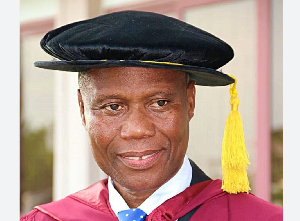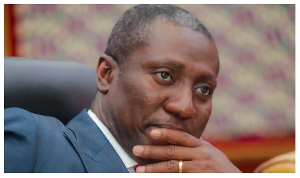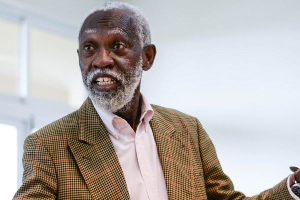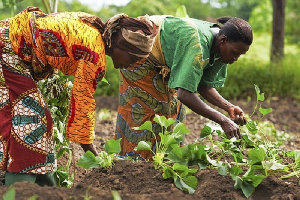


DC Kwame Kwakye Blog of Monday, 28 October 2024
Source: KWAME KWAKYE
KAAF University College to receive Presidential Charter

KAAF University College, a fast-sprawling private university in Ghana, is keenly waiting for a Presidential Charter from President of the Republic, His Excellency Nana Addo-Danquah Akuffo-Addo.
This follows recommendation by the Ghana Tertiary Education Commission (GTEC) that KAAF be awarded a Presidential Charter as an independent private university.
This was made known by the Rector of KAAF, Prof. Herbert Kwablah Dei during the thirteenth congregation ceremony of the university in which a total of 629 undergraduate students graduated.
The Presidential Charter is an official or formal recognition or an authorisation granted to an educational institution by the president which allows the institution to award its degrees and certificates.
If the Presidential Charter is signed and sealed by the president, KAAF University College would become a full-fledged autonomous private higher institution of learning.
KAAF, would therefore, be accredited to run as an independent private university without being affiliated to any of the state-owned universities in the country.
The journey of the Charter
Prof. Kwablah Dei stated that though the University College’s charter journey which began in February 2023 was quite daunting and cumbersome, the process was successfully completed in June 2024.
He attributed the successful completion of the daunting and cumbersome process to the tenacity of purpose and determination which significantly impacted on the success story.
Assurance of quality
The Rector gave an assurance that KAAF University would work assiduously to maintain acceptable standards as prescribed by the GTEC and other Regulatory Bodies.
“Even though we are about to become a chartered university, we will continue to receive mentorship from our affiliate institutions such as KNUST, GIMPA, UDS and UHAS until their programmes are phased out.
We, also, affirm our commitment towards maintaining high quality and standard of education for the benefit of all stakeholders. He assured.
Chairman of governing council’s remarks.
In his welcome address, the Chairman of the Governing Council of KAAF, Prof. K. B. Omane-Antwi noted that the evolvement of technology at a rapid pace, has created in its wake, opportunities and challenges.
The global economy, he said, was experiencing a skills shortage, particularly in Science, Technology, Engineering, and Mathematics fields, commonly known as STEM.
“However, as we look toward the future, we recognize that it is not just technical skills that will drive innovation and progress. It is also the creative and critical thinking skills, embodied in the concept of S.T.E.A.M, which integrates the arts into the heart of S.T.E.M education”. He emphasised.
He, therefore, stated that the current trends suggested that the exclusion of the ‘Arts’ would have serious implications and consequences on the success rate and holistic development of creative and inventive learners.
This, he said, was because “no country has ever developed in the absence of effective Creative Arts education, for Science and Technology thrives in the presence of arts education”.
Prof Omane-Antwi said, “The fact remains that STEM curriculum is not a panacea for innovation but rather, a focus on STEAM which includes Arts integrates design principles, concepts, techniques, visual thinking, and creative problem-solving skills in learners”.
The theme for the occasion was "Empowering Tomorrow’s Leaders Through S.T.E.M & Creativity (S.T.E.A.M) Within The 21st Century Education Skills Development,"
Opinions

















